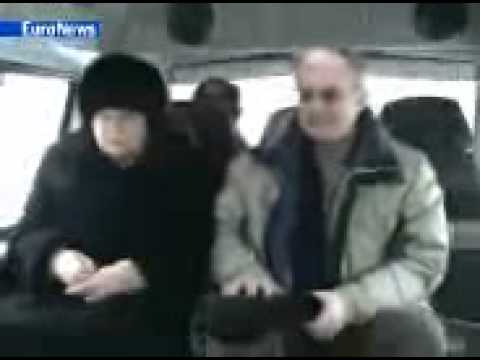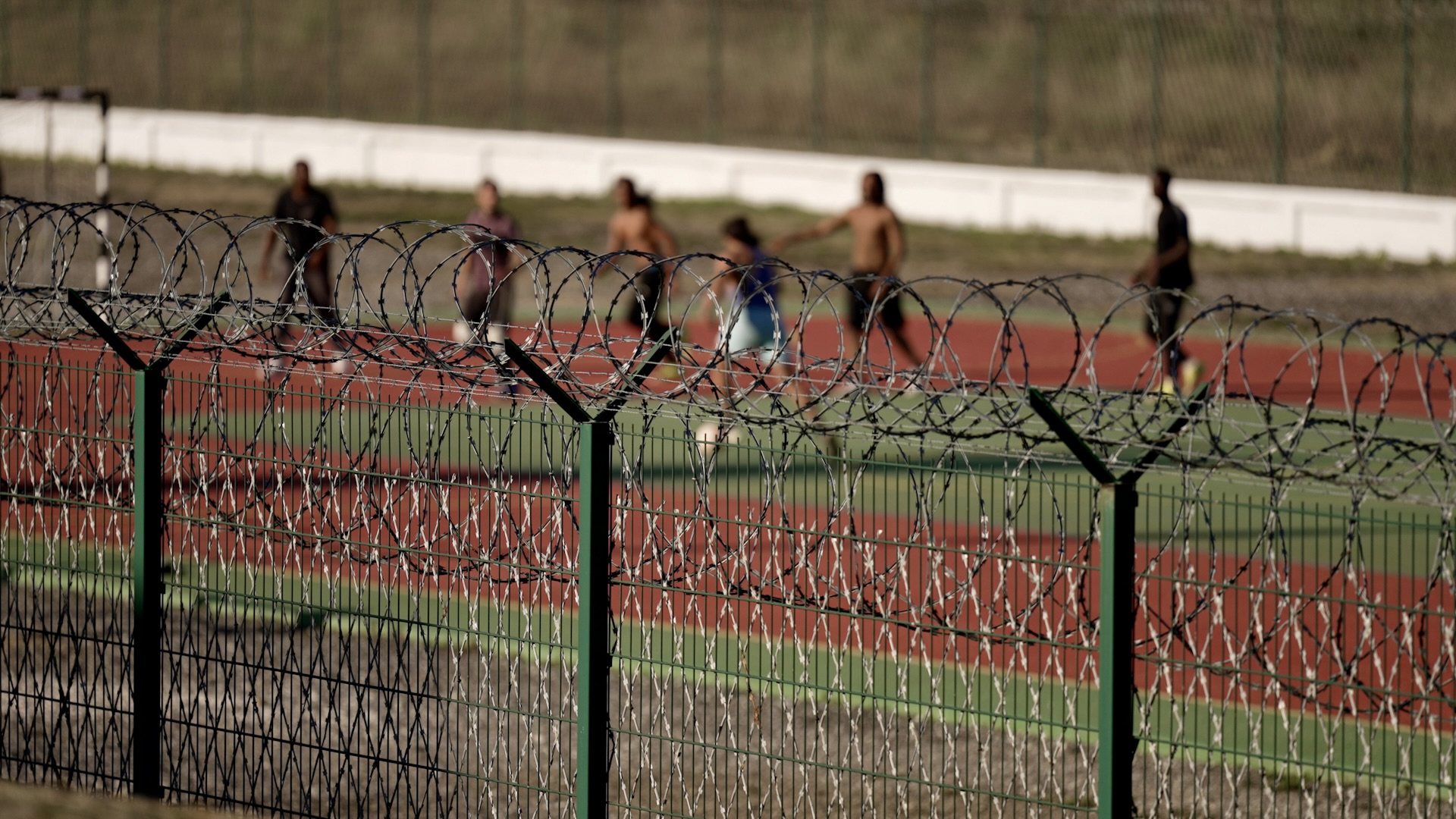Racial intolerance. Social exclusion. Legal injustice. Numerous problems challenge the development of civil society in Russia. A project to provide public with free access to legal information gives some a hope for change. This week – in Europeans.
In St. Petersburg, African students never walk alone. Several murders and dozens of attacks in the last months gave the second-largest city of Russia an ill fame of the racist capital. After getting no protection from local police and administration, Chadians Freeman and Innocent with their Ugandian friend Andrew found unexpected help in the National library of Russia.
Freeman Ngaguedeba, student from Chad: “The fear become an everyday’s friend, since I personnaly, sinse we have become victims of an attack. We were lucky to escape… When a foreigner is killed and we’re making a small manifestation, a march, we know that the citizens of the city won’t be interested – noone will come out with us”.
Andrew Nsamba, student from Uganda: “Here, in St.Petersburg, it was like climax of beating of me. Because they broke my hand, I laid in a hospital for some good time”.
Today in the legal information center they’re looking for a way to protect themselves.
Andrew Nsamba, student from Uganda: “Actually, we didn’t know too much about the international laws… There were many things we’ve discovered with this center. Yeah, we’re using it, we’re using it. We’re using it. It’s a nice place”.
The man whose ideas and initiative led to creation of such centers in public libraries is Alexey Demidov, the deputy chairman of the UNESCO “Information for All” Programme National Committee of Russia.
The legal information centers allow using a computer database or a printed archive to search through local and international legislation. The databases are being constantly updated, providing residents for the first time with a free and convinient source of any official texts and figures.
Alexey believes that universal access to information of public domain can transform Russian society, challenged by violence, xenophobia and social exclusion. Since various regions have various problems, he suggests individual approach.
Alexey Demidov, the deputy chairman of the UNESCO “Information for All” Programme National Committee of Russia: “Every town, every region has its own specifics, own ways. And in each of them this project answers to local needs, not copying Moscow or St.Petersburg. From one hand, we’re using international experience, from the other – it’s ours, it’s mine. And that’s important. Through this project Russia integrates itself into the international community, people start to understand better the ideas of civil society and rule of law, and that’s important”.
In St.Petersburg, a group of teachers and human rights activists are trying to counter the rising level of xenophobia with an innovative course of school education.
Using another legal information center as headquarters, they develop a full-scale civic discipline based, according to the group, on “European principles of humanist and democratic legal culture”. The “Humanitarian pedagogy center” is already collaborating with dosens of public schools and hopes to expand further, counting on desired support from the government.
Russia’s Ministry for economic development and trade assists in creating public access centers, seeing them as “sprouts of internetisation”.
Tseren Tserenov, deputy director of the Corporate Governance Department of the Ministry for Economic Development and Trade of Russia: “Those who don’t have Internet access will in future find themselves far behind those who do – in the level of knowledge as well as in social activity. We can say, as a matter of fact, that it’s impossible to live without the Internet today”.
This year mr. Demidov’s project was honored with a prestigious State prize; he skipped the Prime minister’s award ceremony to show us more centers.
Alexey Demidov: “Bryansk region is one of the most polluted by the Chernobyl radiatioactive fallout. That’s why people there need centers of ecology information most urgently”.
The administration of the Bryansk region declares citizens’ access to the ecological information “a human right”. Forests in the western parts of the region are still highly radioactive, and any fire there may cause massive polution.
Since the Chernobyl disaster in 1986 access to several areas of the Bryansk region is restricted, some other territories are concidered dangerous to health of residents.
In both of these zones still live people, says Boris Kopirnov, local ombudsman. His office doubles as a legal information center in the district library. Visitors are getting assistance in sueing the State for lost health.
Nikolai, an unemployed widower, lives on polluted territory with two small sick children; if the court takes his side, he’s going to win 30 (thirty) euros of single-payment compensation.
Anatoliy wants to be recognized as a victim of radiation.
Anatoliy Sviridov, invalid of 2nd category: “I became ill in 1987, soon after working in the polluted areas, cleaning them, in 1986. Now i’m an invalid. I’ve 14 chonic diseases. Both my collegues, who were younger than me, have passed away already, they died – and I barely live myself”.
In the neighbour Smolensk region economical instability is the gravest problem: the district hugely depends on federal dotations.
Both local students and businessmen use public centers of legal and business information to understand the situation and try to change it to the better.
The legal information centers bring changes even to small towns – like Talashkino, 20 km to the south from Smolensk. After such center was opened in local library, its first employee was elected mayor by grateful fellow-villagers. The advent of previously unseen computer become a sign of hope for many residents of the poverty and alcoholism-striken village.
For many, legal information centers are just a great help; for others, they become the profession.
Elena, 30, is a professional lawyer. After graduating from the Moscow State University she works at the legal information center of the Russian state library for the blind.
Having no eyesight, she gives juridical consultations and wins cases in court.
Elena Novikova, a consultant of the legal information center in the Russian state library for the blind: “There was a visitor – a woman having problems with both sight and hearing asked for a consultation. She [was suing the Moscow administration, but] couldn’t represent herself in the court, and I decided to participate in the hearings instead of her. I was searching for the documents she neded, helping her with the papers – doing everything that an advocate does. The process continues, and the first two cases we won”.
Alexey Demidov is convinced: the wide network of legal information centers in Russian public libraries can become a missing mediator between citizens and authorities to help establishing the civil society.
Alexey Demidov: “Free access to information is as essential to Russia as it is to other countries. Europe and USA went this way during the development of their democracies – it’s a necessary condition, and it’s important that Russia does go the right way”.
Whatever’s the way, the legal information ceners help those who use it not to get left behind.





